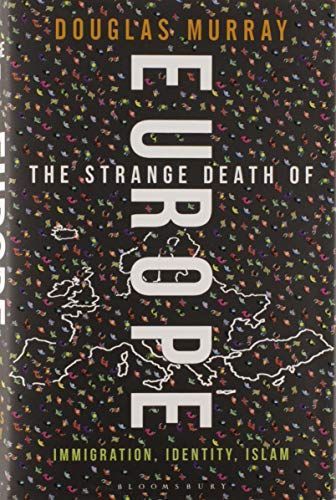
The Strange Death of Europe Immigration, Identity, Islam
The Strange Death of Europe is a highly personal account of a continent and culture caught in the act of suicide. Declining birth rates, mass immigration, and cultivated self-distrust and self-hatred have come together to make Europeans unable to argue for themselves and incapable of resisting their own comprehensive alteration as a society and an eventual end. This is not just an analysis of demographic and political realities, it is also an eyewitness account of a continent in self-destruct mode. It includes accounts based on travels across the entire continent, from the places where migrants land to the places they end up, from the people who pretend they want them to the places which cannot accept them. Murray takes a step back at each stage and looks at the bigger and deeper issues which lie behind a continent's possible demise, from an atmosphere of mass terror attacks to the steady erosion of our freedoms. The book addresses the disappointing failure of multiculturalism, Angela Merkel's U-turn on migration, the lack of repatriation, and the Western fixation on guilt. Murray travels to Berlin, Paris, Scandinavia, Lampedusa, and Greece to uncover the malaise at the very heart of the European culture, and to hear the stories of those who have arrived in Europe from far away. This sharp and incisive book ends up with two visions for a new Europe--one hopeful, one pessimistic--which paint a picture of Europe in crisis and offer a choice as to what, if anything, we can do next. But perhaps Spengler was right: "civilizations like humans are born, briefly flourish, decay, and die."
Reviews
Bad Girl Bex@bad_girl_bex
Rebecca McCombe@beckiscool
Luca Conti@lucaconti
Tyler Stober@tyler
Özgür Özer@zgrzr
Alexander Lobov@alexlobov
Ieva Bekmane@aveish
Theodora Pantelich@theodora13